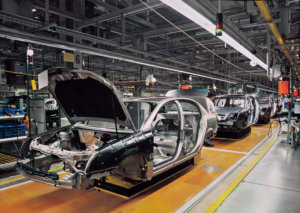The topic of gains from trade is central in mainstream international trade theory, and is almost all about comparative advantages. However, main-stream trade theory has a serious draw- back, since it focuses on trade in final goods, hence disregarding trade in intermediates. Besides representing the great majority of international exchanges, trade in intermediates is the source of an extremely relevant phenomenon which is has been deepening in latest years, i.e. international division of labour, which is shaping the structure and evolution of global value chains.
Far from being determined by technological differentials, as traditional theory states, interna- tional division of labour is rather driven by wage, and labour standards and conditions in gen- eral, differentials. This is specially apparent in Europe, where eastward enlargement of the EU widened core countries’ range of off-shoring opportunities. In particular, in recent years—and more markedly after the introduction of the Hartz Reforms—Germany could take advantage of EU enlargement to keep the “head” of production chains at home and off-shore the most labour intensive stages of production to Eastern Europe countries. This allows to keep GDP—i.e. the value of final commodities produced—growing while reducing the quantity of national labour em- ployed. Incidentally, this leads to an increase in national labour productivity which has nothing to do with technological progress, but only with exploitation of “arbitrage” possibilities. Moreover, since intermediate production stages off-shored to peripheral countries are totally determined by production decisions taken in the core country, the latter acquires the power to dictate the terms of political and social struggle in peripheral countries. In other words, after the fall of the Wall and the dissolution of USSR, capital has been reorganising and reshaping by leading international division of labour.



